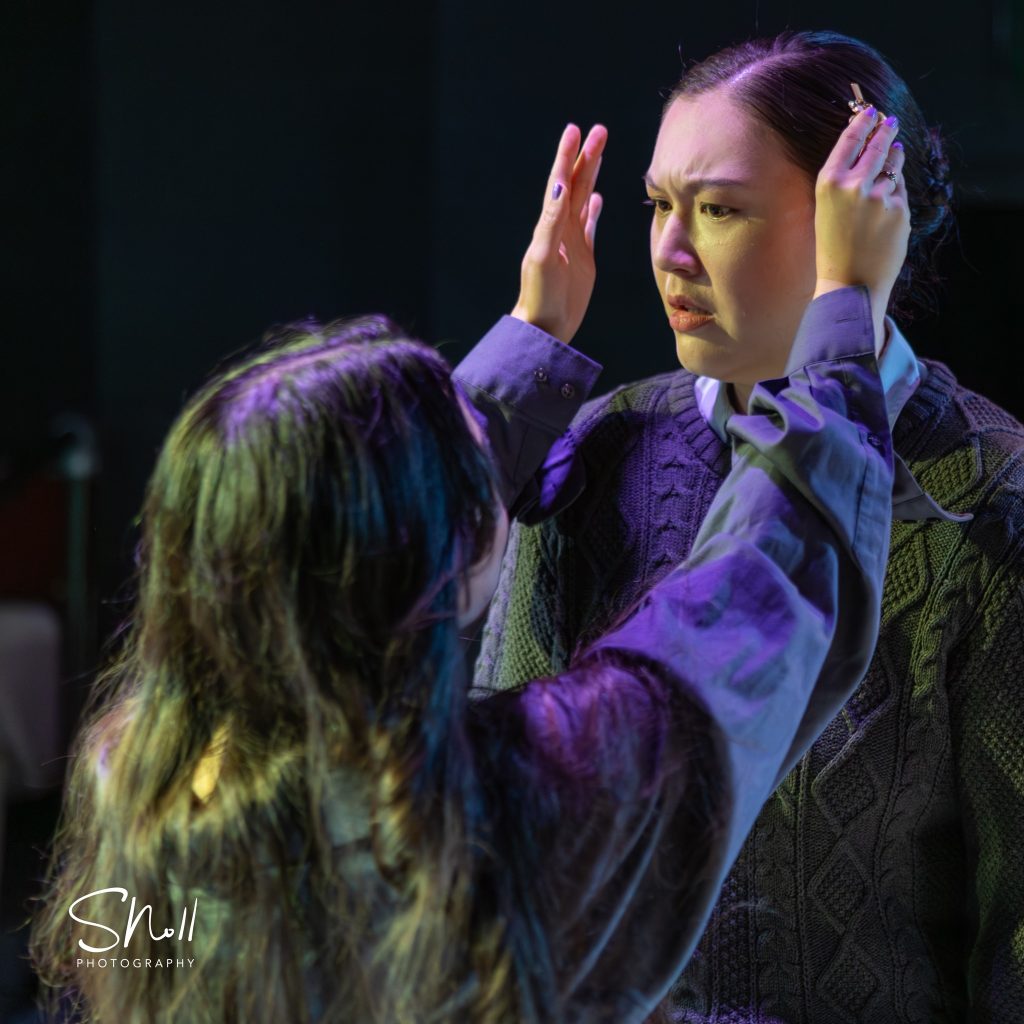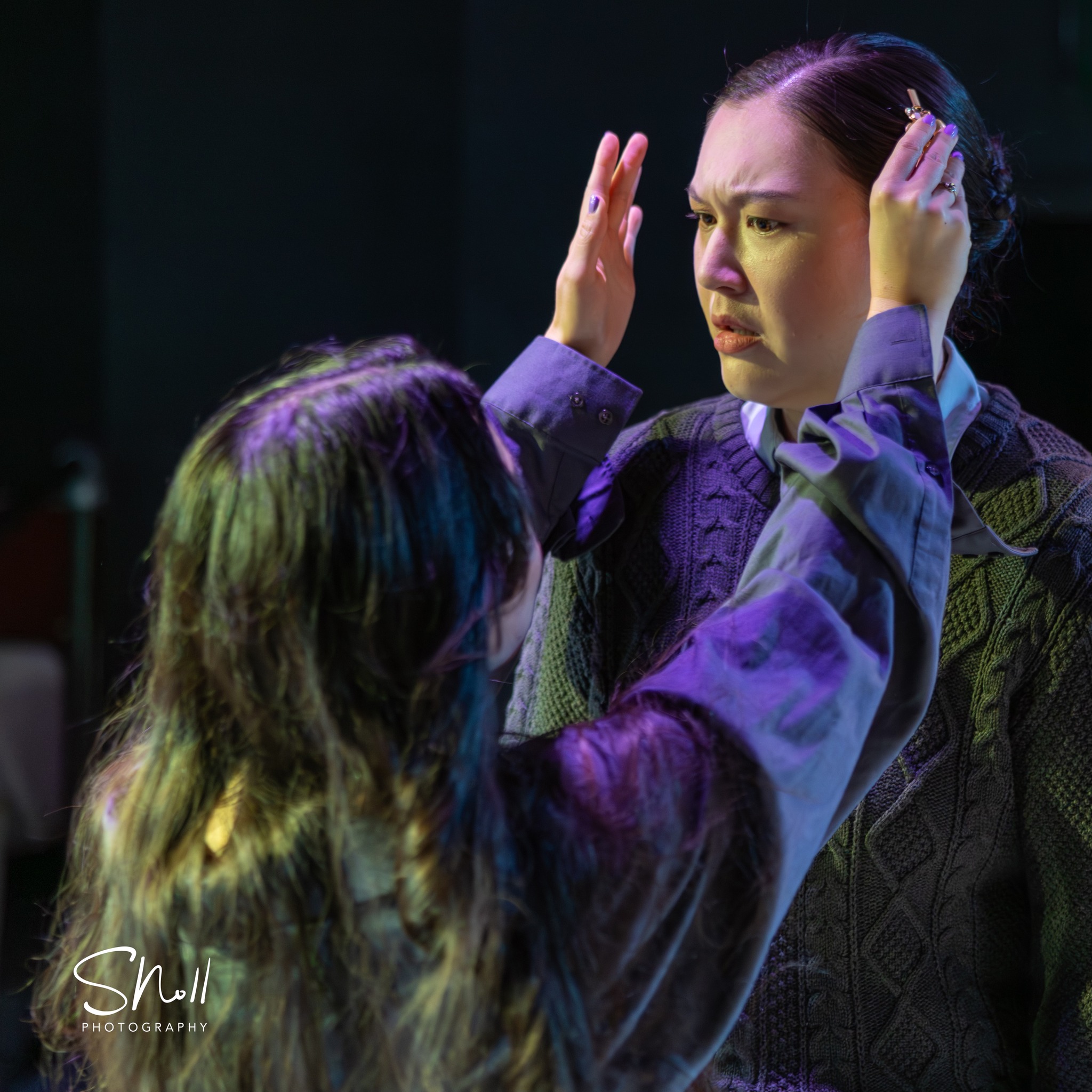There is pansies, that’s for thoughts
A massive hurdle in being a performer of Shakespeare is preconceptions.
Yours and others.
These plays, and roles, and even you as a performer are all preexisting when you walk into the process on day one. The easiest thing to do is pull those preconceptions out of the box, say the words in order and go home.
I don’t get paid enough for that. The compensation comes in making something for me or the audience that I haven’t tried before or that I haven’t seen before.
So the most important thing to do before running headlong into these hurdles is to get down to actual facts.
- Polonius is the Jacques/Toby Fool of the piece, almost certainly played by the company member who plays the others and written for them.
Editor’s note: Polonius, Jacques, Boyet, Antipholus of Syracuse, Bottom, Toby, and Lafew are all in the same 2000-2200 word pocket. - Polonius is referenced as old a bunch of times, but almost entirely by Hamlet making fun of him. Which is a relationship trait not a character trait.
- Everyone in court respects him. Being annoyed by someone doesn’t make them ineffective. That he is The Fool doesn’t make him foolish. Saying lots of words doesn’t make him wrong.
- Polonius’ children respect him and love him. That relationship can’t be antagonistic or the second half of the play can’t happen.
- Whatever his part in the removal of Old Hamlet he is not a lean-back functionary spy – he is the energy the Claudius and Hamlet both lack. He is action until Lil Hamlet takes action.

Julia Verstraete and Maddie O’Keefe in performance as Laertes and Ophelia
in Mercury Players’ production of Hamlet at the Bartell Theatre in Madison Wisconsin.
Physicality: One of the things I swim hardest upstream against as a performer is that I have been playing 50 year olds since I was 15. I spoke a little bit about it in my post show augury for Quills. For the larger part of my performing life “age” has been a prosthetic that I need to add via movement and vocal choices. As I actually finally age into the roles I’ve been playing all my life it’s honestly hard to forget not to do that.
So step one here was making sure that I wasn’t adding any sort of physicality to make him creaky. And to make sure that vocally we stayed away from too many “pipes and whistles in his tone”
This, multiplied by the call to energy both as a neighbor fool to Sir Toby and the needed dramaturgical engine until the arras moment happens, meant that I wanted to keep him moving. If he isn’t doing laps around our very small battlefield the energy is bending him to and fro like a used card sock-man as it tries to escape him.
That energy always moves directly at the thing he aims at, either on the X in the Evjue or straight down the lines of the stage. The only curves are for his family. He bends for Laertes and Ophelia, he pivots. He listens, he responds to input. Everyone else he is waiting for them to be done talking, or in the case of Reynaldo… not even that.
The energy and lack of prosthetic creak in the joints keep the motor running in Polonius moments, match the energy of Laertes in the second half, and keep the others in the castle literally spinning.
I think I achieved what I was looking for here without making him too distressingly fidgety.
Vocal: The twin sister of not doing old man voice is not pitching up to signal “officious”. It is an easy cartoony way to achieve the goal. But playing the old townsman “well actually” nerd vocally is pretty narrow. I have a terrible case of “Shakespeare voice” when I’m not making specific choices so I wanted to try to get down to my natural voice but amplified. The idea being that we’ll let the Hamlets deal in poetry and we’ll take care of business.
The raw volume of words required that I up the pace and the high pace moved the voice forward in my mouth so it ended up pitched pitched relatively high. Higher than I would have chosen if I had the ability to articulate better from further back. But this pitch forward means a warmer, softer, more natural tone when I slow down and am not in business mode. Vidilicet with my family.
So not what I intended but in a way that works out okay.
I would like to get better at using that deeper register with the rigorous enunciation and I would like to have better volume control when energized. I tend to let the volume match the energy and if I’m going to keep performing in such a small space I need to find more granular levels.
Look thou: Character:
First: like Jacques and Toby – folks are sometimes annoyed by Polonius but they keep him around. So he’s not just a stick in the mud functionary. He has a place in this cosmos and is continually working to cement that place.
Marry here’s my drift, and I think it a fetch of wit.
There is only business and family. And the business in the end is about securing the future for family.
It makes everything very easy for Polonius honestly. He has set his children up for success and he will shepherd them until they are in their seats. Laertes high in government if not elected King. and Ophelia well married if not on the throne.
They aren’t just arbitrarily assigned teammates. He is a fan of both of them and has very high expectations. But most of all he loves them outside of all reason. And they love him despite the digressions and the sheer torrent of yap. I wanted the Polonius family to be the mirror-image of the Hamlet family even in simple ways like incidental contact.
We went into the process with that warmth as the goal and it just paid off and paid off and paid off.
I wanted to sell family but I was honestly shortsighted as to how much we gain in the second half by creating a family we root for in the first half.
A Polonius that is acting proactively to help his children gets progressively more agitated and active as they are more and more harmed by the utterly insane royals. We don’t have to tell that story – don’t hurt my little girl is easy.
An Ophelia who has had mother, brother, lover and now father peeled away mourning the father in a disregulated way makes sense in a way that a formal obedient relationship doesn’t.
And Laertes both kicking down the door to the castle for revenge and being taken in by a “caring” Claudius both pay off without the audience having to do any math.
I love the little family we created and I love that audiences are sad when we lose. I honestly have no idea why one would try to make it bossier and more formal. it seems like a long way to go to making the Polonius Family as chilly as the Hamlet Family. To no positive effect.
Overall
A solid bit of story-telling. I accomplished what I wanted to in terms of relationship building and physicality and hit %70 of what I meant to do vocally as I untrain bad habits. I think that next Hamlet I would like to rehearse in the full scenes a couple of times even though we will perform the cut. There are bits and bobs of relationship, especially Hamlet/Polonius, that I think we could clean up if we take the time to visit the entire zoomed out picture.
I also would like to try Polonius and Ophelia as the gravediggers.
There is no need for the Polonius performer to have more words to say. But Polonius grave-splaining to Ophelia while digging her grave really tickles me. And then he hands her her funerary flowers as she leaves to get him a drink? 100% gilding the lily, but if Polonius isn’t stacking hats on hats what are we even doing?




